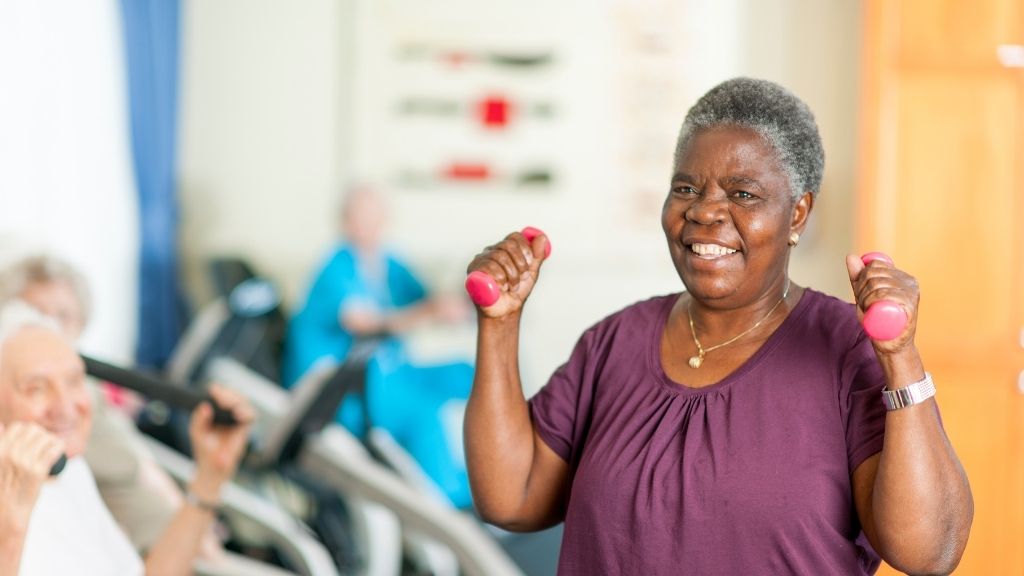Exercise and Your Brain
The partnership between exercise and your brain is vital. We are programmed to be movers. Our physical movements can directly influence our ability to learn, think, and remember.
Our physical movements call upon some of the same neurons used for reading, writing and math. The relationship between food, physical activity, and learning is hardwired into the brain’s circuitry. The full impact of our lack of movement is just becoming known. We may have literally programmed movement out of our lives with today’s technology-driven society.
This is why a sedentary lifestyle is a disruption of our nature and a risk to our long-term survival.
Lack of Exercise and Your Brain
Exercise increases the level of Serotonin, Norepinephrine, and Dopamine – neurotransmitters that impact our thoughts and emotions. However, it is not well known that toxic levels of stress erode the connections between billions of nerve cells in the brain. Chronic depression also shrinks certain areas of the brain. Conversely, exercise can unleash neurochemicals and growth factors that can reverse this process. Moving our muscles produces proteins that travel through the bloodstream and into the brain. With the exercise and your brain responds like muscles do – by growing with use, and enhancing brain function.
The Connection Between Depression, Exercise and your brain
According to the World Health Organization, depression is the leading cause of disability in Canada, ahead of coronary heart disease, any given cancer and AIDS. Research has shown that depression is caused by a deficit in three neurotransmitters – Serotonin, Norepinephrine. Current research is focused on trying to reverse that deficit with medication and/or exercise.
Pain is related to depression. Endorphins and stress hormones calm the brain and relieve muscle pain. In Britain, doctors now use exercise and your brain as a first-line treatment for depression. In addition to elevating your mood when you exercise, you feel good about yourself.
Exercise and your brain, and Addiction
Eighty percent of Individuals suffering from substance abuse also have a secondary diagnosis of depression and anxiety disorder.
Individuals describe themselves as “feeling numb”. Natural forms of stimulation are “boring” against the vivid experience of the drug. As tolerance develops, it takes more and more of the drug to have the same initial intense “feeling.” Exercise increases the release of dopamine and endorphins produced by the body and can have the same effect as a drug, producing a “natural high.” Many treatment centers now include exercise as an integral part of their programs.
Gender Differences in Exercises and Your Brain
After adolescence, hormone levels remain relatively stable in men.
However, for women, they fluctuate like clockwork. Exercise is particularly important for women as it tones down the negative consequences of hormonal changes, and for others enhances the positive. During pregnancy, exercise has been found to reduce nausea fatigue and joint and muscle pain. Studies suggest mothers who are fit have a lower incidence of postpartum depression. Overall Exercise and your brain balance the system on a monthly basis as well as each stage of life, including pregnancy and menopause.
Impact of our Lack of Exercise
The evidence is all around us throughout the developed world. The rise of obesity and type 2 diabetes in our populations, – once a problem of middle age is now epidemic among children. These are preventable diseases that stem from inactivity and poor nutrition. Science is now able to determine that inactivity is physically shrivelling our brains. Our culture treats the mind and body as if they are separate entities. What neuroscientists have discovered in the past five years is a riveting picture of the biological relationship between the body, the brain and the mind.
St. Raphael Wellness Centre (SRWC)
SRWC is a unique, welcoming, recovery-oriented community that accompanies individuals, families and friends affected by substance abuse in their journey toward recovery in mind, body, and spirit. We offer group, individual, couples, and family counselling and education programs during the day and evening.






